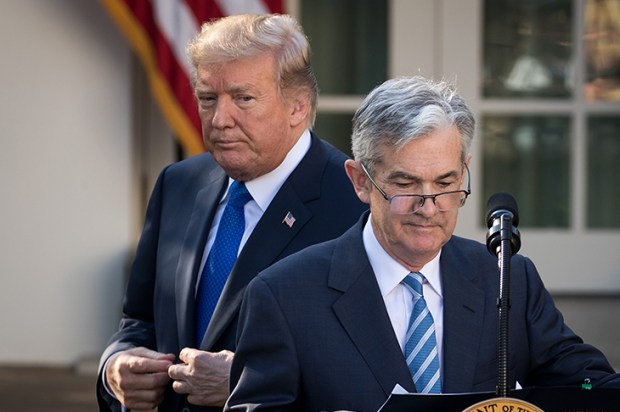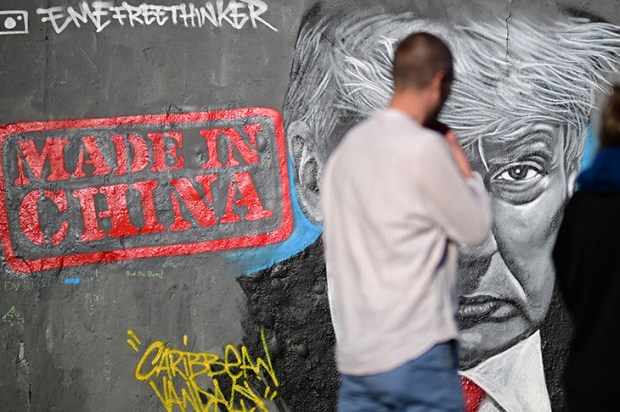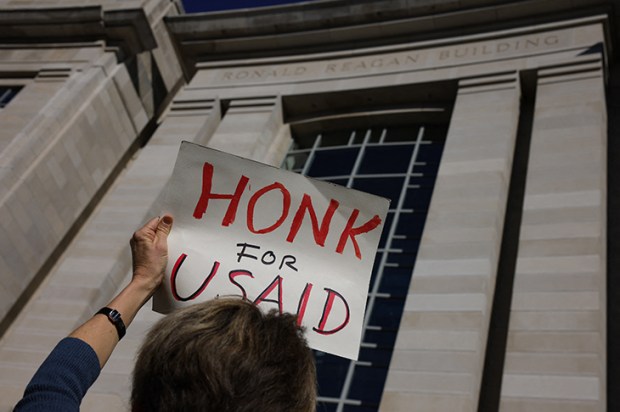Are Americans tired yet of President Donald Trump’s foreign policy wins? The most undiplomatic president imaginable has scored some remarkable diplomatic triumphs. Brash, vulgar, bombastic, alternating between threats, insults and bromance, a bull in search of the next china shop to wreck, who believes soft power is for suckers and others’ love of America springs from fear of its leader, Trump escalates to de-escalate. The first draft of history on Israel’s accomplishments since October 2023 looks good for Trump as well as Netanyahu. Nato allies have agreed to increase defence spending to five per cent of GDP. Secretary-General Mark Rutte stroked his ego so shamelessly you sensed Trump was purring with pleasure. Critics of his re-tariffication policy fell into the trap of assessing it on economic outcomes when he was wielding it as an economic weapon to advance foreign policy goals. Two days after a public cancellation by Trump of trade talks, Canada rescinded its already enacted law to impose a three per cent tax on big US tech firms on Canadian revenue above $20 million.
Former Israeli foreign minister Shlomo Ben-Ami described Trump as ‘an agent of anarchy’. As well as disrupting the trading order, he has withdrawn from the UN Human Rights Council, WHO and net zero pacts and imposed sanctions on the International Criminal Court. His vice president and cabinet officials have called out allies’ lapses on free speech. Many domestic and European critics dismiss him as Putin’s cat’s-paw. Yet Operation Midnight Hammer severely degraded Iran’s nuclear weapons capability, substantially lengthened its nuclear breakout time and also dealt a blow to Russia’s prestige and interests. Walter Russell Mead remarks on the irony that ‘there are no two leaders in the Western world who are more universally loathed and despised by the great and the good than Donald Trump and Bibi Netanyahu’. Trump is a Jacksonian in foreign policy, prioritising the well-being, security and prosperity of Americans, resistant to foreign military adventures but prepared to use the full force of American might if the US or allies are threatened. In Yoram Hazony’s telling, in Trump’s vision America’s job is not to police the world but to protect its own interests. The only countries worth cultivating as allies are not protectorates neglectful of their own security but regional powers with the ability and the will to defend themselves. Hence Israel’s and Netanyahu’s attractiveness to Trump but indifference to Albanese. Hence, too, conversely, the landmark EU-Canada security and defence cooperation pact signed on 23 June as a harbinger of multipolar North Atlantic security community as a hedge against perceived US unreliability.
Love him or loathe him, Trump bestrides the world like a colossus. The results-oriented President is a latter-day practitioner of a globalised Monroe Doctrine. He asserts US hegemony over the world and conducts himself as emperor of the Middle Kingdom expecting tributes from vassal states lower down the hierarchy in acknowledgment of the dominant power. Trump has given enough examples by now to discern a pattern or modus operandi of his approach to foreign policy: make outlandish demands, demand negotiations, set deadlines, take punitive action, alternate between threats meant to coerce and flattery meant to encourage concessional measures by the antagonist de jour, keep everyone guessing on what he is going to do and when, and end either by losing interest if nothing happens (hence the pejorative Taco label: Trump always chickens out) or else by claiming the greatest success ever by any US or world leader.
Amidst a self-doubting strategic culture no longer capable of using force to defend core interests, fragmenting social cohesion, sclerotic economic growth, collapsing self-confidence and political incoherence, the democratic West is in crisis. In consequence the US alliance system has lost control of the global agenda. If the reach of foreign military ventures must be pared back to match US grasp, then the logical corollary has to be that allies must develop the capability and resolve to take military action on their own in defence of vital interests no longer shared by a US chastened by the repeated setbacks of messianic interventionism. The US and allies must both accommodate to the new normal of an America that is shedding the burden of imperial protectorates: a lesson that the Albanese government has been resistant to heeding.
Trump is forcing all allies to wake up and smell the coffee. ‘Responsible’ and ‘serious’ presidents tailor their pre-presidential statements and promises to the realities of the world they confront after taking office. Visionary leaders act to reshape the world and bend the arc of history to their goals and personality. Phrased like that, it’s not too difficult to discern which side of the ledger Trump falls on. He has effectively positioned the US as the world’s most explicitly revisionist power, perturbing the liberal international order it fashioned and championed with a dense latticework of rules, norms and institutions. He has upended climate accords, the world trading system, the international criminal justice project and the normative restraints on the unilateral use of lethal force against other states and even against foreign citizens outside US territorial jurisdiction.
The experiences of Afghanistan, Iraq, Libya and Syria after their ‘humanitarian liberations’, including massacres of Christians, should give Panglossian optimists on a ‘new Iran’ a reality check. To describe a post-theocracy situation as combustible would be an understatement. Yet, so far at least, Trump has departed from previous scripts by successfully avoiding a similar collapse into another forever war in the Middle East. The US operations were limited to two days, beating the 1967 Israeli record of six days, with no loss of US life and aircraft nor collateral civilian casualties. US ground forces were not deployed into active combat.
Neither a neoconservative or liberal interventionist hawk, nor an isolationist, Trump is ‘ambidextrous’ in the way he has successfully threaded the needle between the standard binary categories. America First isn’t reducible to America Alone. Ideology neither restrains nor impels him. Short and sharp military and economic action to compel, coerce, punish and deter, yes. But no ground invasion, no open-ended commitment to foreign military adventures and entangling alliances, no regime change. He would no doubt be horrified to learn of the comparison to President Barack Obama’s infamous ‘leading from behind’ example in Libya: behind Nato Europe in 2011 and behind Israel in 2025 but the former a net failure. Analysts are still trying to decide if he knew of Israeli plans to attack in advance and approved or jumped in to share in the success, as well as whether his two-week warning to Iran was calculated strategic misdirection or overtaken by the speed and scale of Israeli strikes. Regardless, against the triumphant Israelis and Americans, Shiite Iran stood lonely as Sunni Arab rivals experienced rare schadenfreude while China and Russia stood on the sidelines offering empty platitudes. The bravado of authoritarian leaders and boasts of a multipolar world have been exposed as hollow. But a word of warning: Iran has been chastened but not cowed and its nuclear weapons drive has been interrupted but not crippled.
Got something to add? Join the discussion and comment below.
You might disagree with half of it, but you’ll enjoy reading all of it. Try your first month for free, then just $2 a week for the remainder of your first year.












